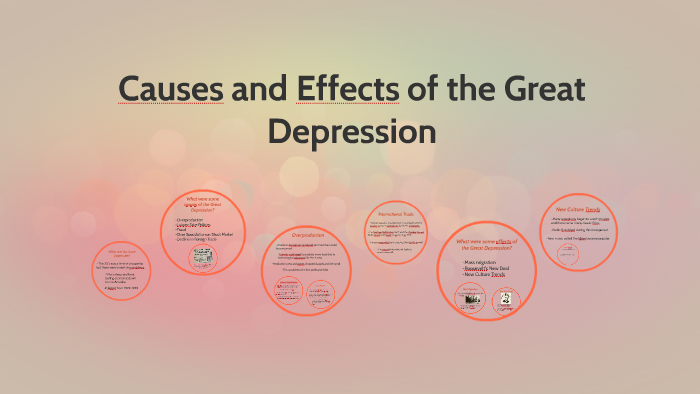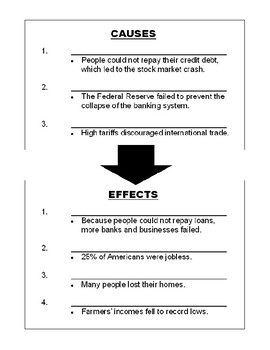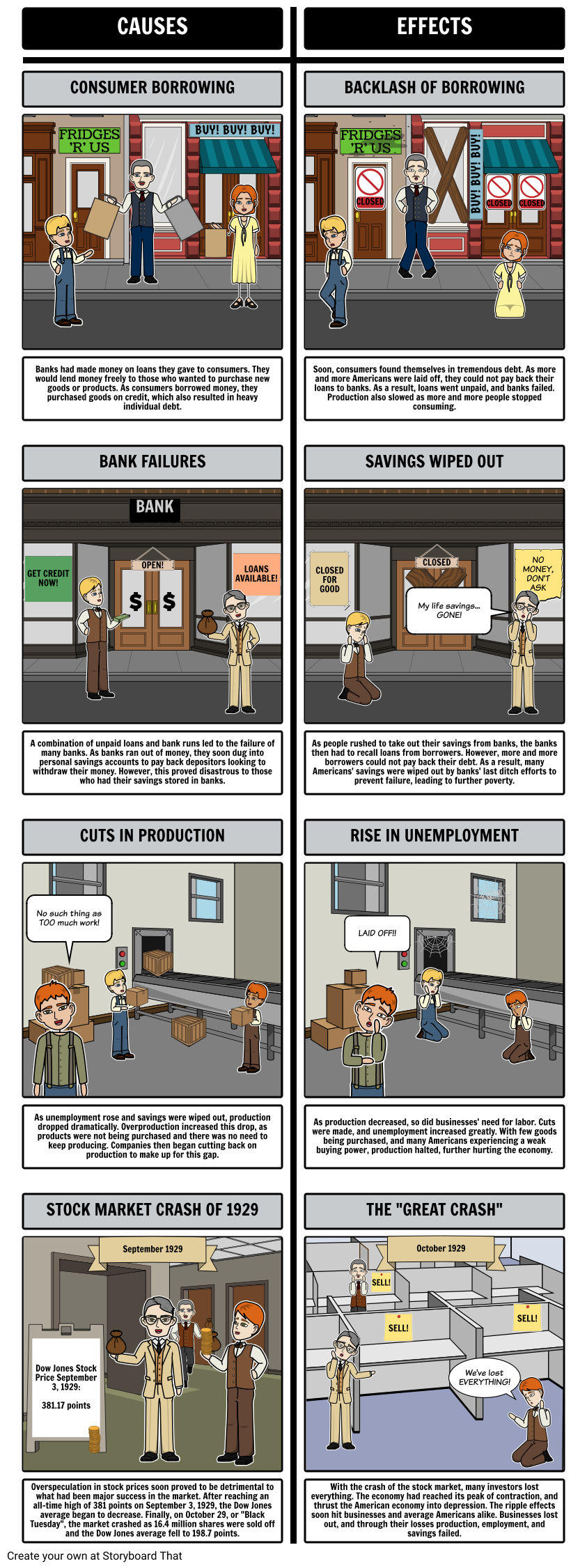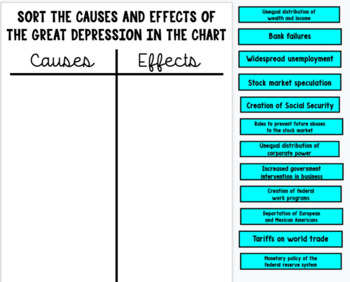The Great Depression was a severe economic downturn that occurred during the 1930s and affected countries around the world. It was the longest and most severe depression ever experienced by the industrialized Western world. The Great Depression had a profound impact on the global economy, leading to widespread unemployment, poverty, and social unrest.
There were several factors that contributed to the onset of the Great Depression. One major factor was the overproduction of goods during the 1920s. In the United States, businesses were producing more goods than consumers were able to buy, leading to a surplus of goods and a decline in prices. This led to a decrease in demand for goods and a decrease in production, which in turn led to a decrease in employment and income.
Another factor that contributed to the Great Depression was the collapse of the stock market. In the 1920s, the stock market had reached record highs as investors poured money into stocks. However, in 1929, the stock market began to decline, and on October 29, known as "Black Tuesday," it suffered a major crash. This caused panic among investors and led to a significant loss of wealth.
Another factor that contributed to the Great Depression was the failure of banks. During the 1920s, many banks had invested heavily in stocks and real estate, and when the stock market crashed and real estate values plummeted, many banks went bankrupt. This led to a lack of confidence in the banking system and a decrease in the availability of credit, which further slowed the economy.
The Great Depression had a number of negative effects on people around the world. Unemployment soared, as businesses struggled to survive and were forced to lay off workers. Many people lost their homes and their savings as a result of the economic downturn. The Great Depression also had a significant impact on the global economy, as trade declined and countries began to impose tariffs and other trade barriers in an attempt to protect their own industries.
The Great Depression had a lasting impact on the world economy, and its effects were felt for many years. It led to the adoption of more interventionist economic policies, such as the New Deal in the United States, which aimed to stimulate the economy and provide relief to those affected by the depression. It also led to the rise of authoritarian regimes, such as Nazi Germany and fascist Italy, as people turned to more extreme solutions in their search for economic stability.
In conclusion, the Great Depression was a major economic downturn that had far-reaching effects on the global economy. It was caused by a combination of factors, including overproduction, the collapse of the stock market, and the failure of banks. The Great Depression had a negative impact on people around the world, leading to widespread unemployment and poverty, and had a lasting impact on the world economy.
Ethical behavior in business refers to the actions and decisions made by individuals and organizations that adhere to moral principles and values. It involves being honest, fair, and respectful towards others, and taking responsibility for the impact of one's actions on stakeholders such as employees, customers, suppliers, and the community.
There are numerous benefits to practicing ethical behavior in business. First and foremost, it helps to build trust and credibility with stakeholders. When individuals and organizations act in an ethical manner, they demonstrate their commitment to doing the right thing and being transparent. This can lead to increased customer loyalty and a positive reputation, which can translate into long-term financial success.
In addition, ethical behavior can improve relationships within the workplace. When employees feel that their employer is acting in an ethical manner, they are more likely to have a positive view of the organization and be more motivated to do their best work. This can lead to increased productivity and a more positive work environment overall.
Ethical behavior is also important for compliance with laws and regulations. By following ethical principles, individuals and organizations can avoid legal consequences and fines, and ensure that they are operating in a manner that is consistent with the laws and regulations of the industry in which they operate.
Furthermore, ethical behavior can contribute to the overall well-being of society. When businesses act ethically, they can have a positive impact on the community and the environment. For example, they may choose to use environmentally-friendly practices, engage in philanthropic activities, or support diversity and inclusion initiatives. This can help to create a more sustainable and equitable world.
In conclusion, ethical behavior in business has numerous benefits. It helps to build trust and credibility with stakeholders, improve relationships within the workplace, ensure compliance with laws and regulations, and contribute to the overall well-being of society. As such, it is essential for individuals and organizations to prioritize ethical behavior in their business practices.







